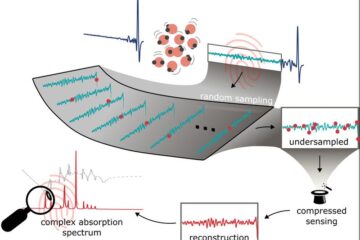New research reveals inadequate hospital hand hygiene is spreading MRSA

Evidence to support this claim was found during a research project which Dr Elizabeth Jenner, Principal Lecturer in Infection Control in the University’s School of Nursing and Midwifery, conducted into healthcare professionals’ hand hygiene practices.
The research which was led by the University of Hertfordshire consisted of Professor Ben Fletcher, Head of the University’s School of Psychology, Dr Linda Miller, Senior Research Fellow, Institute of Employment Studies (IES), Dr Fiona Jones, University of Leeds and Dr Geoff Scott, University College London Hospitals.
The findings which are published in The Journal of Hospital Infection showed that 38% of the research sample of 71 health professionals failed to wash their hands after contact with MRSA patients, while 25% failed to wash their hands after contact with faeces and 38% failed to wash their hands after contact with blood.
Dr Jenner commented: “Inadequate hand hygiene practice contributes to the 8% prevalence rate of hospital-acquired infection which is currently costing the NHS in England nearly £1 billion per annum.
MRSA is spread predominantly by unwashed hands. This is now endemic in most of our hospitals. In fact, England now has the worst MRSA bacteraemia rate in Europe.”
In a programme of eight research studies, undertaken under the University’s School of Psychology, the team looked at the implications of inadequate hand hygiene in hospitals, its role in the spread of infection, such as MRSA, and the effectiveness of practical demonstrations and hand hygiene posters in carrying the message.
The research culminated in a study which observed healthcare professionals on hospital wards and compared their hand hygiene behaviour with self-reports of their actions, taking particular note of practice when working with patients infected or colonised with MRSA.
Professor Ben Fletcher, Principal Supervisor of the research programme commented: “What is most worrying here is that healthcare professionals say one thing and they do another. There is no link between what they say and what they do.
“If we adopt a culture where we urge healthcare workers to treat everyone as if they are infected, then they stop risk assessing. They can’t wash their hands all the time, so we need to teach them how to risk assess.”
Media Contact
More Information:
http://www.herts.ac.ukAll latest news from the category: Health and Medicine
This subject area encompasses research and studies in the field of human medicine.
Among the wide-ranging list of topics covered here are anesthesiology, anatomy, surgery, human genetics, hygiene and environmental medicine, internal medicine, neurology, pharmacology, physiology, urology and dental medicine.
Newest articles

A novel universal light-based technique
…to control valley polarization in bulk materials. An international team of researchers reports in Nature a new method that achieves valley polarization in centrosymmetric bulk materials in a non-material-specific way…

How evolution has optimised the magnetic sensor in birds
The magnetic sense of migratory birds is probably based on the protein cryptochrome 4, and a genetic study has now provided further support for this theory. A team of researchers…

Molecular Fingerprint Beyond the Nyquist Frequency
Ultrafast laser spectroscopy allows the ascertainment of dynamics over extremely short time scales, making it a very useful tool in many scientific and industrial applications. A major disadvantage is the…





















